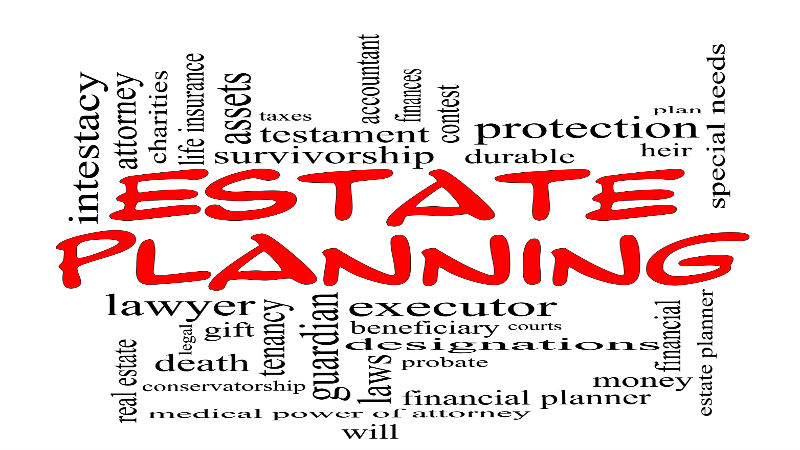Planning for the future can feel overwhelming, but estate planning is one of the most important steps families can take to protect their assets and wishes. Whether you’re just starting a family or preparing for retirement, understanding the essentials can help you make informed decisions and avoid unnecessary complications later.
Estate planning isn’t just for the wealthy—it’s for everyone. It ensures your property, finances, and healthcare preferences are managed according to your wishes in case of illness, incapacity, or death. Without proper planning, these matters may be left to the court system, which can lead to unintended outcomes and added stress for your loved ones.
What is Estate Planning?
Estate planning involves organizing and managing your assets during your lifetime and determining how they will be distributed after your death. This process typically includes preparing important estate planning documents such as wills, trusts, powers of attorney, and healthcare directives.
In California, having a solid estate plan can also help minimize estate taxes, avoid family disputes, and reduce legal fees for your heirs. Without a clear plan, the state may determine how your assets are distributed, which could go against your wishes. Estate planning also ensures that your financial and healthcare decisions are made by someone you trust, should you become unable to manage those affairs yourself.
The Importance of an Estate Planning Lawyer
While it’s possible to draft basic documents online, working with an estate planning lawyer provides clarity, legal precision, and tailored guidance. A licensed attorney can help ensure your documents meet California’s legal requirements and address your specific circumstances.
Legal professionals can also explain the nuances of California probate law, community property issues, and ensure that your trust is properly funded—a step many people overlook. Your attorney can coordinate with financial advisors, accountants, and other professionals to ensure a fully integrated plan.
Key Documents in Estate Planning
- Last Will and Testament: Outlines how your assets will be distributed and names a guardian for minor children.
- Living Trust: Helps avoid probate and allows for easier management of assets.
- Durable Power of Attorney: Appoints someone to handle your finances if you become incapacitated.
- Advance Healthcare Directive: States your medical preferences in case you can’t communicate them.
- HIPAA Authorization: Gives loved ones access to your medical information.
You can learn more about the differences and benefits of estate planning and trusts and estate planning and wills on our website.
Estate Planning for Families
Families with children or dependents benefit significantly from a clear estate plan. Estate planning for families includes choosing guardians, setting up trusts, and ensuring beneficiaries are correctly designated. Planning also ensures minor children are cared for by someone you trust if something unexpected happens.
A trust can be particularly helpful for families with children from previous marriages or family-owned businesses that require clear succession plans. Incorporating these into your estate plan reduces uncertainty and conflict. Families may also want to include instructions for education funding, charitable contributions, and guidelines for specific inheritances.
When Should You Start Estate Planning?
Ideally, you should begin estate planning as soon as you have assets or dependents. Key life milestones that should prompt an update to your plan include:
- Marriage or divorce
- Birth or adoption of a child
- Buying a home
- Starting or selling a business
- Retirement
Many clients wait until retirement, but starting early allows you to make thoughtful decisions without the pressure of a crisis. It also provides peace of mind, knowing your loved ones are protected. And because estate plans should evolve with your life, updates every few years are recommended.
Estate Planning and Probate
One of the primary goals of estate planning is to avoid probate whenever possible. Probate is the court-supervised process of distributing assets, and it can be time-consuming and expensive. Creating a living trust is one effective way to bypass probate and maintain privacy.
However, even with the best planning, some assets may still go through probate. That’s why it’s important to work with an attorney who understands how to minimize exposure. Knowing which assets—like life insurance policies or retirement accounts—pass outside of probate can help streamline your estate plan.
Choosing the Right Estate Planning Law Firm
When selecting a professional to guide you, look for a team that understands your goals and values. A reputable estate planning law firm will take the time to get to know you and customize a plan that aligns with your vision for the future.
They should also assist you with asset titling, beneficiary designations, and periodic reviews to keep your plan up to date. A law firm that offers long-term support is a valuable resource as your needs change over time.
Common Misconceptions
- “I don’t have enough assets to need an estate plan.” Even if you own a home, have children, or simply want to make your healthcare wishes known, estate planning is crucial.
- “I already made a will, so I’m done.” Estate planning is ongoing and should be reviewed regularly to stay effective.
- “My family knows what I want.” Verbal instructions often lead to confusion or legal disputes; written, legally binding documents are essential.
Additional Tips and Stats
- According to Caring.com, only 34% of Americans have an estate plan.
- A recent survey found that 60% of people say estate planning is important but only 1 in 3 have taken action.
- Keep digital assets in mind—passwords, online accounts, and digital photo libraries should be addressed.
- Review your estate plan every 3–5 years or after major life changes.
- Include instructions for pet care, digital media, or legacy items like letters or video messages.
Estate planning is more than just documents—it’s about securing your legacy, protecting your loved ones, and giving yourself peace of mind. Whether you’re planning for children, aging parents, or your own future, working with a knowledgeable attorney can make all the difference.Start your planning journey today with a confidential consultation to learn how you can protect what matters most. And if you’re wondering where to begin, download our free estate planning checklist to help you get started with confidence.


